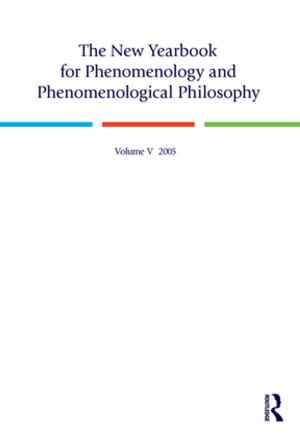Kurdistan in Iraq
The Evolution of a Quasi-State
Nonfiction, Social & Cultural Studies, Political Science, International, International Relations, Social Science| Author: | Aram Rafaat | ISBN: | 9781351188814 |
| Publisher: | Taylor and Francis | Publication: | May 11, 2018 |
| Imprint: | Routledge | Language: | English |
| Author: | Aram Rafaat |
| ISBN: | 9781351188814 |
| Publisher: | Taylor and Francis |
| Publication: | May 11, 2018 |
| Imprint: | Routledge |
| Language: | English |
The Kurdish-Iraqi conflict lies in the fact that Kurdistan is a nation-without-a-state and Iraq is a non-nation state, each possessing a nationhood project differing from and opposing the other. Iraqi-Kurdistan is an outward looking entity seeking external patronage. Though external patronage has played a pivotal role in the evolution of the Kurdish quasi-state, a lack of positive patronage has prevented it from achieving independence.
This book looks at how the Kurdish and Iraqi quests for nationhood have led to the transformation of Iraqi Kurdistan into an unrecognised quasi-state, and the devolution of the Iraqi state into a recognised quasi-state. This is done by examining the protracted Iraqi-Kurdish conflict and by analysing the contradictions and incompatibilities between the two different nationalisms: Iraqi and Kurdish. The author explains that Kurds as a nation without a state have their own nationhood project which is in opposition to the Iraqi nationhood project. Each has its own identity, loyalty and sovereignty. The book answers the question as to how the Kurdish quest for nationhood has been treated by successive Iraqi regimes. Furthermore, it fills in the literary gaps which exist in relation to the Iraqi-Kurdish conflict by specifying and categorising the cardinal conditions that drive ethnic and nationalist conflicts which lead to the creation of separatist entities.
Drawing upon a vast amount of untapped Kurdish and Arabic primary sources, the book draws on prominent theories on nation-states and quasi-states. It will particularly appeal to students and scholars of international relations, political theory and Middle Eastern Studies.
The Kurdish-Iraqi conflict lies in the fact that Kurdistan is a nation-without-a-state and Iraq is a non-nation state, each possessing a nationhood project differing from and opposing the other. Iraqi-Kurdistan is an outward looking entity seeking external patronage. Though external patronage has played a pivotal role in the evolution of the Kurdish quasi-state, a lack of positive patronage has prevented it from achieving independence.
This book looks at how the Kurdish and Iraqi quests for nationhood have led to the transformation of Iraqi Kurdistan into an unrecognised quasi-state, and the devolution of the Iraqi state into a recognised quasi-state. This is done by examining the protracted Iraqi-Kurdish conflict and by analysing the contradictions and incompatibilities between the two different nationalisms: Iraqi and Kurdish. The author explains that Kurds as a nation without a state have their own nationhood project which is in opposition to the Iraqi nationhood project. Each has its own identity, loyalty and sovereignty. The book answers the question as to how the Kurdish quest for nationhood has been treated by successive Iraqi regimes. Furthermore, it fills in the literary gaps which exist in relation to the Iraqi-Kurdish conflict by specifying and categorising the cardinal conditions that drive ethnic and nationalist conflicts which lead to the creation of separatist entities.
Drawing upon a vast amount of untapped Kurdish and Arabic primary sources, the book draws on prominent theories on nation-states and quasi-states. It will particularly appeal to students and scholars of international relations, political theory and Middle Eastern Studies.















